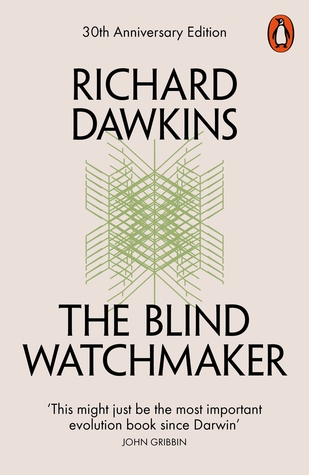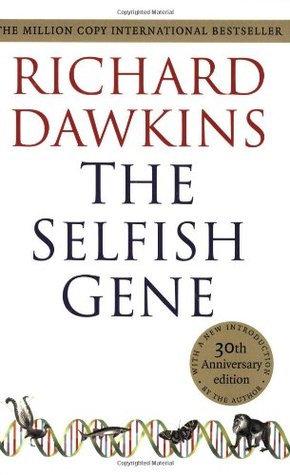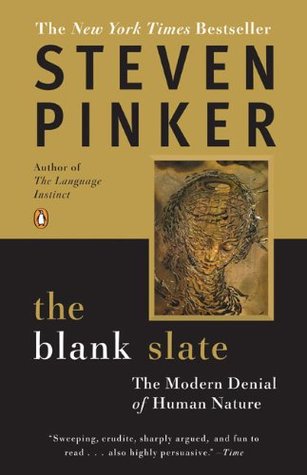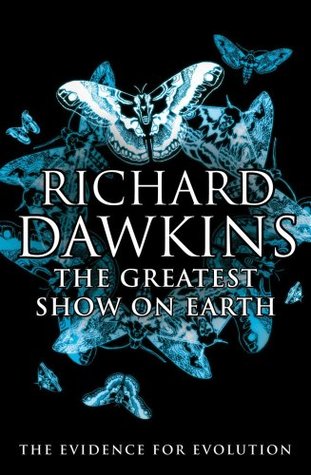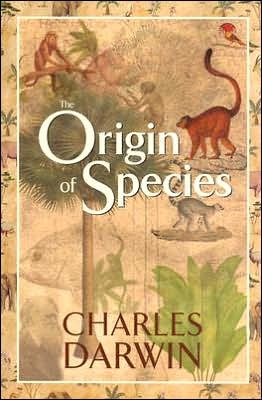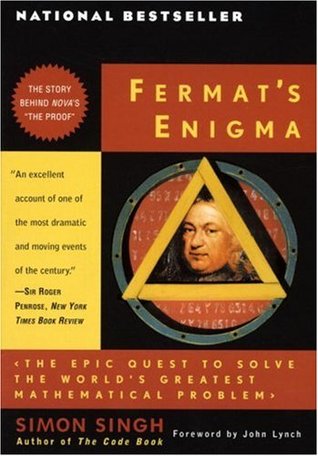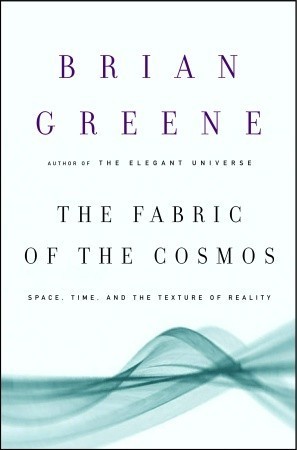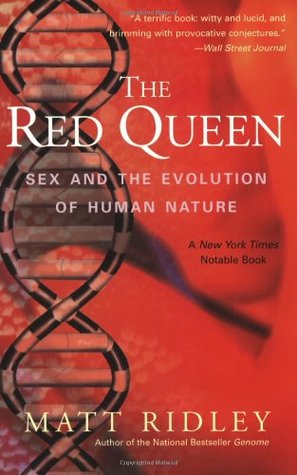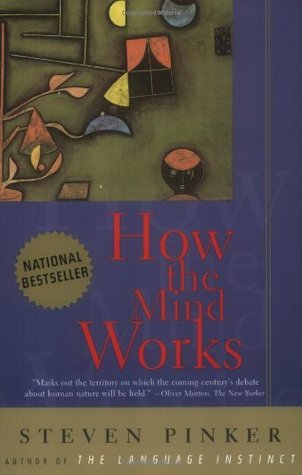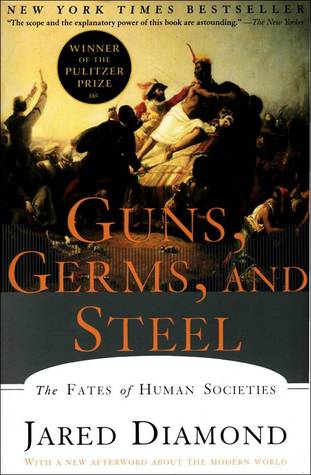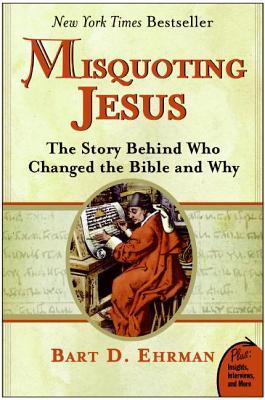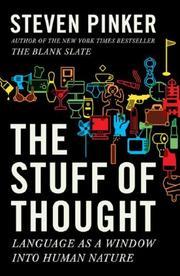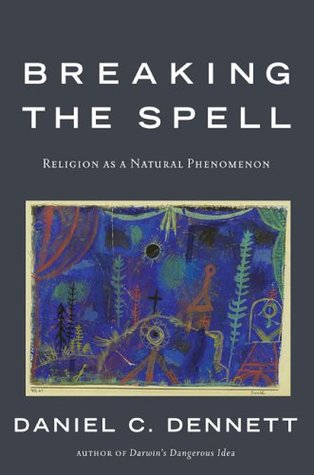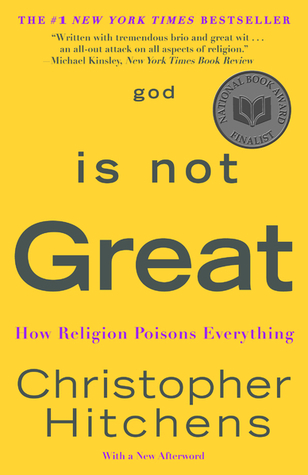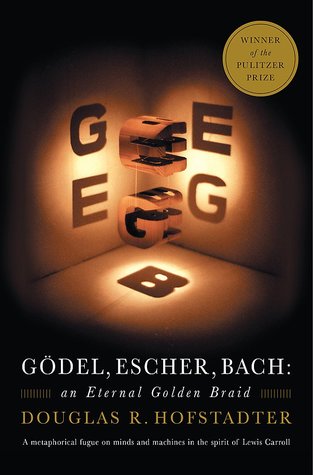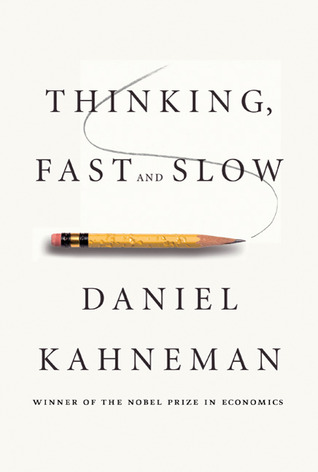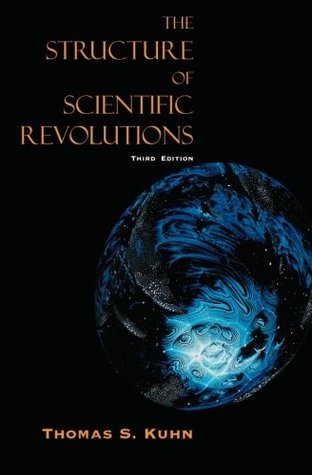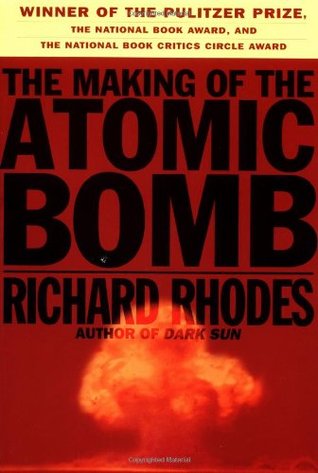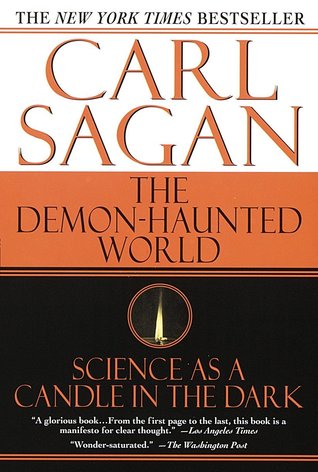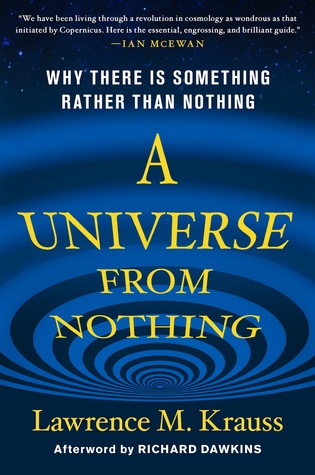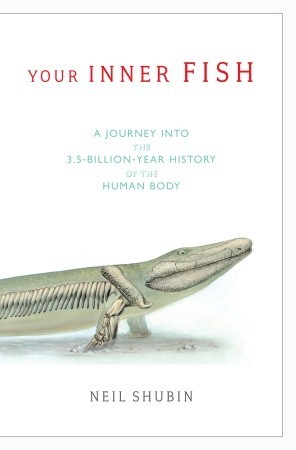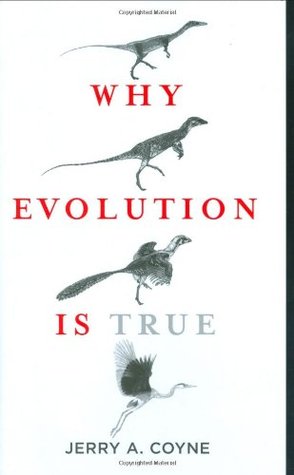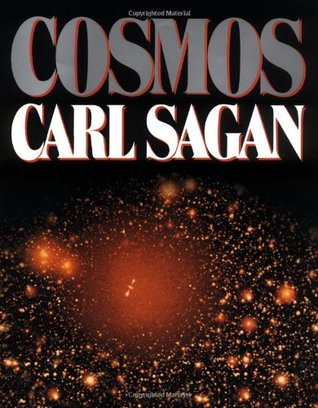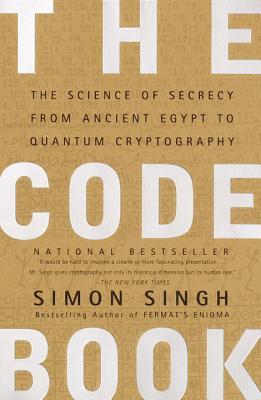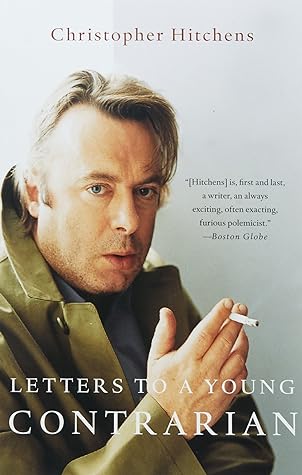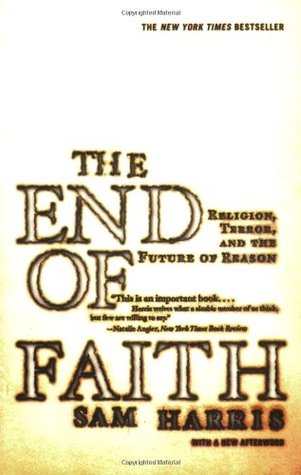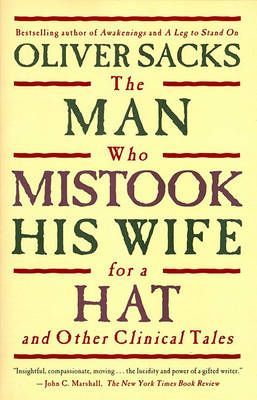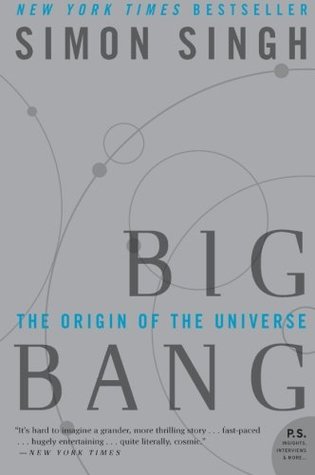Powered by a book like {foo}
Recommendations based on The Extended Phenotype: The Long Reach of the Geneby Richard Dawkins
* statistically, based on millions of data-points provided by fellow humans
The Blind Watchmaker: Why the Evidence of Evolution Reveals a Universe Without Design
by Richard Dawkins
A detailed exploration of the evidence for evolution, and its implications for our understanding of the world.
***30th Anniversary Edition*** Cover note: Each copy of the anniversary edition of, The Blind Watchmaker, features a unique biomorph. No two covers are exactly alike. Acclaimed as the most ... (Goodreads)
The Selfish Gene
by Richard Dawkins
A study of evolutionary biology, exploring how genes act and how they impact behavior.
Inheriting the mantle of revolutionary biologist from Darwin, Watson, and Crick, Richard Dawkins forced an enormous change in the way we see ourselves and the world with the publication of The ... (Goodreads)
Darwin's Dangerous Idea: Evolution and the Meanings of Life
by Daniel C. Dennett
An exploration of the implications of Darwin's theory of evolution, and how it has shaped our understanding of life and the universe.
In a book that is both groundbreaking and accessible, Daniel C. Dennett, whom Chet Raymo of The Boston Globe calls "one of the most provocative thinkers on the planet," focuses his unerringly logical ... (Goodreads)
The Blank Slate: The Modern Denial of Human Nature
by Steven Pinker
The exploration of the science of human nature, including the implications for society.
In The Blank Slate , Steven Pinker explores the idea of human nature and its moral, emotional, and political colorings. He shows how many intellectuals have denied the existence of human nature by ... (Goodreads)
The Greatest Show on Earth: The Evidence for Evolution
by Richard Dawkins
An exploration of the evidence and science of evolution, highlighting its importance in understanding the history of life on Earth.
Charles Darwin’s masterpiece, On the Origin of Species , shook society to its core on publication in 1859. Darwin was only too aware of the storm his theory of evolution would provoke but he would ... (Goodreads)
The Origin of Species
by Charles Darwin
Comprehensive scientific exploration of the evolution of species and the natural world.
Darwin's theory of natural selection issued a profound challenge to orthodox thought and belief: no being or species has been specifically created; all are locked into a pitiless struggle for ... (Goodreads)
Fermat's Enigma
by Simon Singh
Uncovering the centuries-old mathematical mystery of Pierre de Fermat's Last Theorem.
xn + yn = zn, where n represents 3, 4, 5, ...no solution "I have discovered a truly marvelous demonstration of this proposition which this margin is too narrow to contain." With these words, the ... (Goodreads)
The Fabric of the Cosmos: Space, Time, and the Texture of Reality
by Brian Greene
An exploration of space and time in the physical world, looking at the fundamental laws of the universe.
From Brian Greene, one of the world’s leading physicists and author the Pulitzer Prize finalist The Elegant Universe , comes a grand tour of the universe that makes us look at reality in a completely ... (Goodreads)
The Red Queen: Sex and the Evolution of Human Nature
by Matt Ridley
Examines how evolutionary biology shapes human behavior and sexuality.
Referring to Lewis Carroll's Red Queen from Through the Looking-Glass , a character who has to keep running to stay in the same place, Matt Ridley demonstrates why sex is humanity's best strategy for ... (Goodreads)
How the Mind Works
by Steven Pinker
Exploration of the human mind, understanding the elements that make us think and act.
In this extraordinary bestseller, Steven Pinker, one of the world's leading cognitive scientists, does for the rest of the mind what he did for language in his 1994 book, The Language Instinct . He ... (Goodreads)
Guns, Germs, and Steel: The Fates of Human Societies
by Jared Diamond
Tracing the origins of human civilizations through the lens of geography, technology, and biology.
"Diamond has written a book of remarkable scope ... one of the most important and readable works on the human past published in recent years." Winner of the Pulitzer Prize and a national bestseller: ... (Goodreads)
Misquoting Jesus: The Story Behind Who Changed the Bible and Why
by Bart D. Ehrman
A historical analysis of the New Testament, exploring the discrepancies and alterations made by scribes and theologians throughout history.
For almost 1,500 years, the New Testament manuscripts were copied by hand––and mistakes and intentional changes abound in the competing manuscript versions. Religious and biblical scholar Bart Ehrman ... (Goodreads)
The Stuff of Thought: Language as a Window into Human Nature
by Steven Pinker
A fascinating exploration of how language reflects and shapes our thoughts, emotions, and experiences.
New York Times bestselling author Steven Pinker possesses that rare combination of scientific aptitude and verbal eloquence that enables him to provide lucid explanations of deep and powerful ideas. ... (Goodreads)
Breaking the Spell: Religion as a Natural Phenomenon
by Daniel C. Dennett
Examines the origins of religious belief, exploring how it has shaped society.
An innovative thinker tackles the controversial question of why we believe in God and how religion shapes our lives and our future. For a growing number of people, there is nothing more important ... (Goodreads)
God Is Not Great: How Religion Poisons Everything
by Christopher Hitchens
Criticism of organized religion, arguing it is the root of much suffering in the world.
With his unique brand of erudition and wit, Hitchens describes the ways in which religion is man-made. "God did not make us," he says. "We made God." He explains the ways in which religion is ... (Goodreads)
Gödel, Escher, Bach: An Eternal Golden Braid
by Douglas R. Hofstadter
A complex exploration of logic, mathematics and art, exploring their relationships and interconnections.
Douglas Hofstadter's book is concerned directly with the nature of “maps” or links between formal systems. However, according to Hofstadter, the formal system that underlies all mental activity ... (Goodreads)
Thinking, Fast and Slow
by Daniel Kahneman
An exploration of the two systems of the mind, and how they influence decision-making.
In the highly anticipated Thinking, Fast and Slow , Kahneman takes us on a groundbreaking tour of the mind and explains the two systems that drive the way we think. System 1 is fast, intuitive, and ... (Goodreads)
The Structure of Scientific Revolutions
by Thomas S. Kuhn
An analysis of how scientific progress is made, and the role of paradigms and paradigmatic shifts.
A good book may have the power to change the way we see the world, but a great book actually becomes part of our daily consciousness, pervading our thinking to the point that we take it for granted, ... (Goodreads)
The Making of the Atomic Bomb
by Richard Rhodes
Historical narrative of the scientists and engineers who developed the atomic bomb.
Here for the first time, in rich, human, political, and scientific detail, is the complete story of how the bomb was developed, from the turn-of-the-century discovery of the vast energy locked inside ... (Goodreads)
The Demon-Haunted World: Science as a Candle in the Dark
by Carl Sagan
A critical look at superstition and pseudoscience, advocating for the power of science and reason.
How can we make intelligent decisions about our increasingly technology-driven lives if we don’t understand the difference between the myths of pseudoscience and the testable hypotheses of science? ... (Goodreads)
Phantoms in the Brain: Probing the Mysteries of the Human Mind
by V.S. Ramachandran
An exploration of the human brain, examining its functions and mysteries.
Neuroscientist V.S. Ramachandran is internationally renowned for uncovering answers to the deep and quirky questions of human nature that few scientists have dared to address. His bold insights about ... (Goodreads)
A Universe from Nothing: Why There Is Something Rather Than Nothing
by Lawrence M. Krauss
A scientific exploration of the origins of the universe, proposing that it could have arisen from nothing.
Bestselling author and acclaimed physicist Lawrence Krauss offers a paradigm-shifting view of how everything that exists came to be in the first place. “Where did the universe come from? What was ... (Goodreads)
Your Inner Fish: a Journey into the 3.5-Billion-Year History of the Human Body
by Neil Shubin
Exploration of human evolution through the lens of anatomy, revealing our connection to our ancient ancestors.
Why do we look the way we do? What does the human hand have in common with the wing of a fly? Are breasts, sweat glands, and scales connected in some way? To better understand the inner workings of ... (Goodreads)
Why Evolution Is True
by Jerry A. Coyne
Comprehensive exploration of the evidence for evolutionary biology.
Why evolution is more than just a theory: it is a fact. In all the current highly publicized debates about creationism and its descendant "intelligent design," there is an element of the controversy ... (Goodreads)
Cosmos
by Carl Sagan
Voyage through the vastness of space, unlocking the mysteries of the universe.
Cosmos has 13 heavily illustrated chapters, corresponding to the 13 episodes of the Cosmos television series. In the book, Sagan explores 15 billion years of cosmic evolution and the development of ... (Goodreads)
The Code Book: The Science of Secrecy from Ancient Egypt to Quantum Cryptography
by Simon Singh
A comprehensive history of cryptography and its role in shaping our world.
In his first book since the bestselling Fermat’s Enigma , Simon Singh offers the first sweeping history of encryption, tracing its evolution and revealing the dramatic effects codes have had on wars, ... (Goodreads)
Letters to a Young Contrarian
by Christopher Hitchens
A collection of essays offering philosophical reflections on society and the power of dissent.
From bestselling author and provocateur Christopher Hitchens, the classic guide to the art of principled dissent and disagreement In Letters to a Young Contrarian , bestselling author and world-class ... (Goodreads)
The End of Faith: Religion, Terror, and the Future of Reason
by Sam Harris
An exploration of religion, its implications for our world and how it can be replaced with reason.
In The End of Faith , Sam Harris delivers a startling analysis of the clash between reason and religion in the modern world. He offers a vivid, historical tour of our willingness to suspend reason in ... (Goodreads)
The Man Who Mistook His Wife for a Hat and Other Clinical Tales
by Oliver Sacks
A collection of case studies, illustrating extraordinary neurological phenomena.
If a man has lost a leg or an eye, he knows he has lost a leg or an eye; but if he has lost a self—himself—he cannot know it, because he is no longer there to know it. Dr. Oliver Sacks recounts the ... (Goodreads)
Big Bang: The Origin of the Universe
by Simon Singh
A comprehensive exploration of the Big Bang Theory, from its earliest beginnings to its implications today.
A half century ago, a shocking Washington Post headline claimed that the world began in five cataclysmic minutes rather than having existed for all time; a skeptical scientist dubbed the maverick ... (Goodreads)
